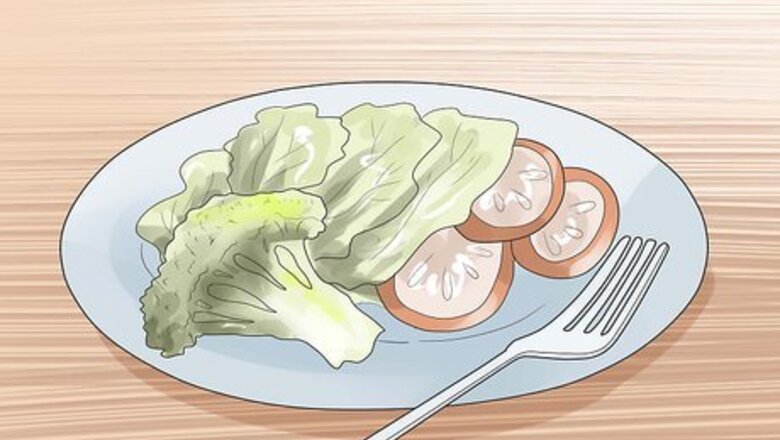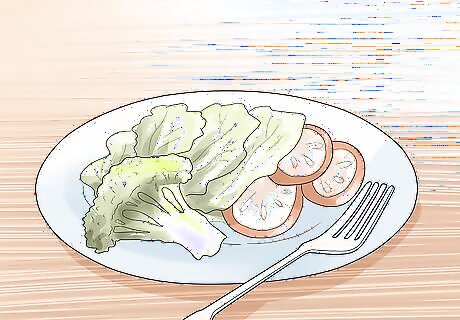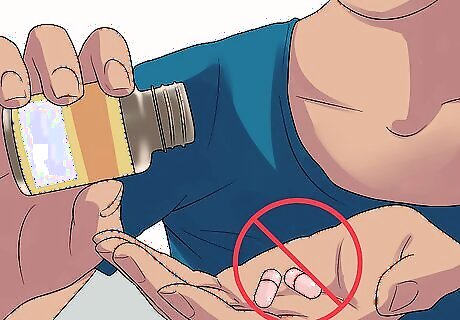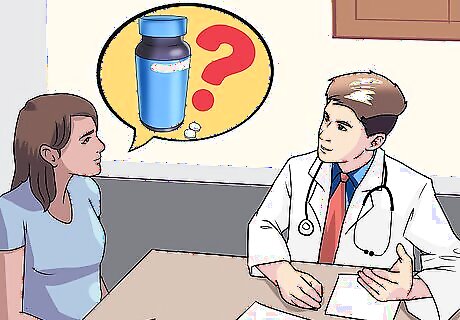
views
Taking Vitamins Properly

Take your vitamins with food. You shouldn't take vitamins on an empty stomach, especially if you're taking fat-soluble vitamins like A, D, E, or K. If you take them with a meal, the vitamins will be absorbed better and they'll cause less symptoms. You should also avoid taking your vitamins before bed.

Experiment on the mode of vitamin. Try different forms of vitamins such as liquids or capsules and dosages to figure out what is less likely to cause your stomach to be upset.

Take the recommended dosage. To decrease the likelihood of stomach upset from vitamins, never take more than indicated on the label or that is prescribed by your doctor.

Skip the caffeine while taking certain vitamins. Some medicines and vitamins interact with caffeine found in coffee or tea. Caffeine can also change the way your body absorbs vitamins. Caffeine may interfere with the absorption of vitamins like calcium, vitamin D, Iron, vitamin B, and others.

Be consistent. You should take your vitamins on a regular schedule and at the same time of day. You can set an alarm to avoid forgetting or taking vitamins late. You can also take your vitamins immediately following dinner, if you eat a consistent time, to follow a consistent time table.
Gathering Information about Vitamins

Ask your doctor if you need to take vitamin supplements if they upset your stomach. If you are eating a well-balanced diet, she might advise you that taking extra vitamins is not necessary. Consult your doctor about alternatives if the problem of stomach upset from vitamins persists.

Determine the correct type and dosage of vitamins. This will help you not only avoid harming your stomach, but also best help your body. You should never take vitamins without first consulting your doctor.

Know what to take and why. If your diet is consistent or you suffer from a chronic disorder, you may include vitamins to your daily routine to supplement what your body is missing. Vegetarians should consider taking iron daily. This provides protein otherwise found in meats. People living without a lot of natural sunlight, or people who do not go outside regularly, should take Vitamin D. The sun naturally produces this vitamin, but people often lack enough. People who have office jobs or live in a climate without a lot of sunlight are especially at risk for Vitamin D deficiency. If your immune system is suppressed, or if it is flu and cold season, take Vitamin C. Vitamin C is a natural immune booster and can help your body resist illness.
Treating Vitamin Side-Effects

Adjust your diet according to how you’re feeling. If your stomach is sensitive to vitamins, eating a balanced diet rich in lean meats, fish, fruit and vegetables will reduce your need to take them.

Avoid taking vitamins on an empty stomach. If you have a sensitive stomach or you take vitamins and upset stomach occurs, always take them after you have eaten. Vitamins on an empty stomach can make the problem worse.

Settle stomach aches and cramps by eating bland foods. White bread and plain white rice are both foods that are easy on the stomach and digestion. Other foods suggested for a stomach ache or nausea include bananas and mint.

Soothe your stomach with peppermint. Though there is little scientific evidence to support peppermint as a remedy, there are many anecdotal reports of peppermint helping to soothe an upset stomach. Try brewing a peppermint tea, which may relax your stomach muscles. Do not take peppermint if you have acid reflux or GERD. Other natural remedies thought to help soothe the stomach include ginger and caraway.




















Comments
0 comment